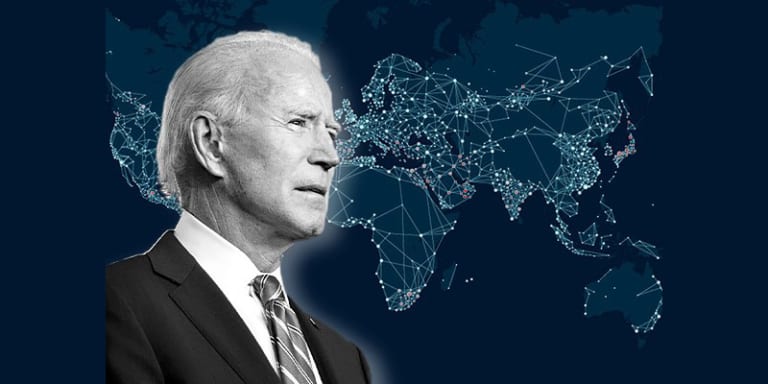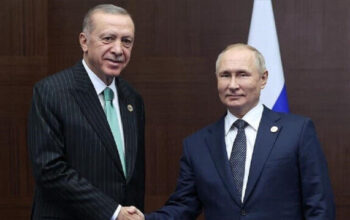The Afghanistan war has formally ended. Its end has led to a replacement policy doctrine for the Biden era. during a speech of clarity, conviction and force, President Biden laid out the principal components of the doctrine.
First, containing China and Russia are going to be the main target folks policy under him. Second, cyber security may be a new mode of warfare and must tend prime attention. Third, America’s counter-terrorism project won’t be pursued via boots on the bottom . Instead, “over the horizon” capabilities, meaning satellites and unmanned drones, are going to be the predominant instruments. Fourth, nation-making or democracy-building won’t be the aim of external military deployment which, if used, will have clear and achievable goals strictly limited to security, not extendable to larger politics. Security won’t include counter-insurgency, meaning long-term military involvement during a war . Fifth, democracy and human rights will still be key drivers of policy , but economic tools and diplomacy are going to be the most methods for achieving such goals. Countries can’t be forced to be free via military means.
This doctrine is different from how Biden’s two predecessors viewed policy . For Donald Trump, bringing the military back home, withdrawal from alliances and unilateralism were important goals. Biden would strengthen alliances, but bring the armed repel from areas where they need ceased to serve “vital national interest”. Though this wasn’t explicitly stated, the implication is that American military deployment in Japan and South Korea will continue, for these “military theatres”, aimed toward balancing China, are far more important than Afghanistan.
The Biden doctrine also departs from how President Obama, his former boss, viewed policy . Obama remained quite torn about military deployment overseas and might even have believed that disengagement from Afghanistan was vitally important. But he couldn’t fully combat the safety establishment, and left the troops in Afghanistan.
Going against much of the safety establishment, Biden has pulled the military out. For over a decade, certainly since the killing of Osama bin Laden (May 2, 2011), Biden has favoured troop disengagement from Afghanistan, but first Obama overruled him then Trump didn’t complete the withdrawal, though he did prepare the bottom for it, however controversially. As President, Biden finally had power to act on his beliefs, and he ended the war. it had been also an election promise.
Criticism, especially from a crucial segment of the safety elites, is probably going to continue. The principal critique centres on Biden’s framing of the alternatives — escalate or leave. If America didn’t withdraw now, said Biden, the sole other choice was sending thousands of troops for a 3rd decade of war. Critics disagree. they assert that the choice of keeping alittle force in Afghanistan and maintaining air support for the Afghan National Army was available. it might have at the very least kept the stalemate going, and not handed a victory to the Taliban. The Afghan army collapsed not because it had no will to fight, but because US support, critical to military combat, was abruptly withdrawn.
Scholars of Afghanistan’s internal politics afflict Biden’s security critics. For them, the elemental flaw of America’s security approach was its concentration of power in Kabul, whereas Afghanistan’s historically rooted tribal and ethnic differences required a decentralised mode of governance and power-sharing. The more power was concentrated in Kabul, the more the nation-building was undermined. Add the sanctuary provided by Pakistan to the Taliban, and therefore the whole system became susceptible to the Taliban’s penetration and capture.
Biden’s security critics have also run up against a crucial political reality. For years now, America’s popular opinion has been turning against the Afghan war. The recent popular frustration was about how the military withdrawal was executed, not about the withdrawal intrinsically . Moreover, this frustration is probably going to ebb, for an estimated 90 per cent of usa citizens living in Afghanistan are evacuated. That thousands of Afghans, who worked alongside the Americans, remain trapped within the country appears to get some regret, but no overpowering emotion. Biden barely touched on this morally significant matter in his speech.
Twenty years after the surprise attack on the planet Trade Center, there’s no popular appetite left in America for prolonging the war. Afghanistan is just too distant from the national imagination. albeit the Afghan war didn’t take too many American lives, it had been consuming enormous resources — $300 million each day , as Biden put it. Moreover, in recent years, terrorist attacks on US soil have come from home-grown groups, not from Al Qaeda or the Taliban based in Afghanistan. the top of the war thus meets the test of domestic popular endorsement. But what about its international implications?
Two interconnected issues are relevant here. First, the Afghanistan intervention was a NATO-supported military enterprise. it’s not clear that Biden consulted European allies before deciding to withdraw. Biden’s explicit endorsement of multilateralism sits uneasily together with his unilateral withdrawal.
Second, and more important, thousands of Afghan allies were left behind during a situation only too susceptible to the Taliban’s naked aggression. this is often sure to create great uneasiness in Taiwan and Japan. Both face Chinese hostility, which in Taiwan’s case is particularly vigorous.
China’s Taiwan preoccupation isn’t adequately appreciated in India’s intellectual and political quarters, which remain understandably concerned with China’s border plans. But within the wider intellectual circles, it’s documented that Chinese security policy features a relentless Taiwan obsession. For Beijing, the border with India may be a much smaller game. China has never given up its ambition of capturing Taiwan, which it views as a “renegade province”. In 1895, Japanese colonialism took it away, and then, in 1949, those that lost the Chinese war made a home there. China views the return of Taiwan as just revenge for its historic humiliation.
Taiwan’s security functions under an American umbrella. Biden says that withdrawal from Afghanistan was necessary because the US must now consider China (and Russia). But will the US provide firm support if Taiwan is mortally threatened by a surging China? Or, is America too war-weary, and Taiwan also too distant from the favored imagination? After Afghanistan, this is often a scary question in world politics. There are not any clear answers, only doubts about America’s plans or capabilities.






